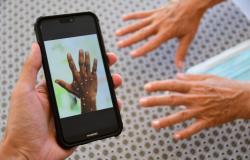More and more primary school children already have a smartphone. However, this age seems premature to introduce such a tool into their daily lives. According to a study by the e-Enfance association carried out in 2023, 50% of children aged 6 to 10 have a smartphone, and the average age of obtaining their first device is 9 years and 9 months, according to Médiamétrie.
Parents faced with an early choice
At the end of primary school, between 8 and 9 years old, some parents choose to give their children a smartphone, explains Justine Atlan, director of the e-Enfance association. However, this decision is not without consequences. There are concerns about the risks associated with early smartphone use – such as cyberbullying or inadequate screen time management.
An expert report published in spring 2024 recommends not giving a cell phone before the age of 11. Up to 13 years old, a basic model without access to the Internet or applications is recommended, and social networks should be avoided before 15 years old.
College, a pivotal stage
The age of 11 often corresponds to entry into secondary school, a time considered opportune to introduce a first telephone. Justine Atlan believes that it is useless to have a smartphone before this step. However, providing middle school students with a smartphone can also strengthen their autonomy.
As Séverine Erhel, lecturer in cognitive psychology at Rennes 2 University, points out, these devices allow students to consult their homework via applications like Pronote or to communicate with their teachers. However, it is essential to educate young people about thoughtful and responsible use.
Essential parental support
More than the age of obtaining it, it is the support of parents which plays a crucial role. They must be trained in parental control tools to restrict access to certain applications and discuss the dangers of smartphones. Discussing its use with the child, helping them analyze the content encountered and encouraging them to share their experiences remains essential.
“We need to talk about unsuitable content that they might encounter and get them to think about their use of social networks,” explains Séverine Erhel. She recommends that parents postpone purchasing a smartphone if they do not feel ready to manage this transition.
Preserving adolescent sleep
Debates over screen addiction and blue light divide scientists, but all agree that using a smartphone at bedtime disrupts sleep.
To avoid these effects, it is best to turn off access to the smartphone at least an hour before bedtime and leave the device out of the bedroom overnight. This simple measure helps protect the well-being of adolescents while allowing them to reap the benefits of technology.






